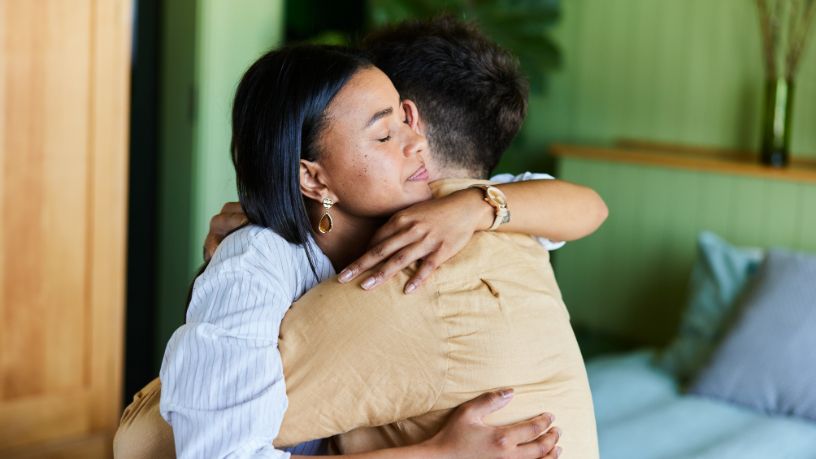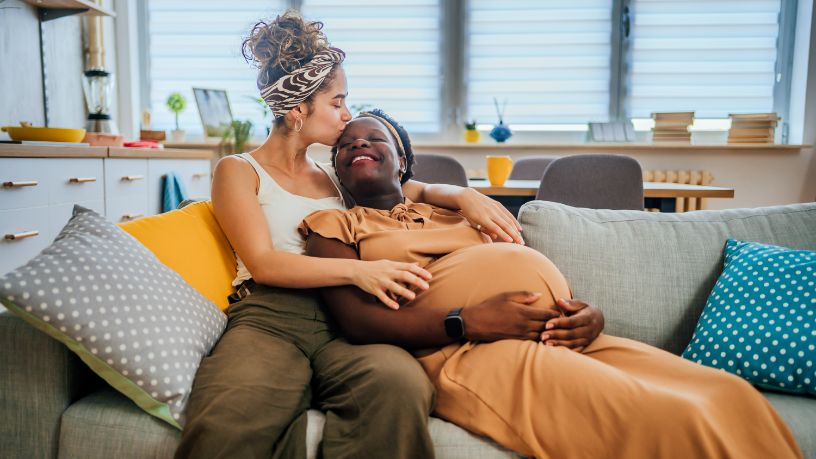Egg freezing doesn’t guarantee you’ll be able to have a baby.
On this page
Key takeaways
It can be physically taxing.
It’s important to ensure you’re emotionally prepared for the procedure.
Egg freezing may help buy you some time if you’re not ready to have a baby just yet. If you’re considering freezing your eggs, here’s what you need to know beforehand.
Timing is everything
Your body is most fertile in your 20s and early 30s. This is when your ovaries have the largest number of healthy eggs. As you get older, the quality and quantity of your eggs declines.
“If having the option to have a baby is important to you, egg freezing is definitely worth exploring,” says Medical Director at Melbourne IVF, Dr Fleur Cattrall. “Between the ages of 30 and 35 is a good idea. If you have medical conditions that may affect your fertility, it can be done earlier.”
You need a GP referral
Before you see a fertility specialist to discuss freezing your eggs, you need a referral from your GP.
Some clinics suggest asking for an indefinite referral, or one that’s valid for 12 months. This allows you to receive the maximum Medicare rebate if you’re eligible.
Do a fertility assessment at 30
It’s a good idea to book in for a fertility assessment when you’re 30 (or earlier if you have medical condition that affects fertility).
A specialist will consider your personal circumstances alongside the results of an Anti-Mullerian Hormone (AMH) Test to measure how many eggs are left in your ovaries.
“The results will tell us whether your ovarian reserve is normal, low or high for your age,” explains Dr Cattrall. Even though the AMH test can tell you how many eggs you have, it doesn’t tell you the quality of these eggs.
“This doesn’t necessarily mean you need to proceed with egg freezing,” says Dr Cattrall. “But it helps you gather information to make an informed decision.”
Know what to expect when you inject
When you freeze your eggs, you’ll need to have a series of daily hormone injections, usually done at home. This helps stimulate egg production over about 10 days. Over this 10 day period you’ll have between 1 and 3 ultrasounds. This monitors the size and number of growing eggs.
You’ll need to have the time and flexibility to attend appointments during this period.
Side effects of the hormone injections may include bloating, breast tenderness, nausea and headaches. In most cases, symptoms are mild, although everyone responds differently.
“During an egg freezing cycle, [people] can continue to work and do all their usual activities,” says Dr Cattrall.
In rare cases, injecting fertility drugs can cause ovarian hyperstimulation syndrome. This causes the ovaries to become swollen and painful. Symptoms include stomach pain, bloating, nausea, vomiting and abdominal swelling.
Egg retrieval happens under general anaesthetic
Egg retrieval is a day surgery procedure. This is performed under a short general anaesthetic.
During the 20 minute procedure, a needle is passed through the top of the vagina to retrieve the eggs from the ovaries.
Once the procedure is finalised, you’ll be escorted back to the recovery bay while your eggs are being transferred to the lab safely. Your doctor will be able to let you know how many eggs they collected.
Most people who have an egg collection under sedation report no pain, but some discomfort such as cramping or feeling a little lightheaded.
There is a rare chance of complications, including infection or injury to nearby organs or blood vessels.
Your eggs can remain frozen indefinitely
Your eggs can remain frozen indefinitely without losing their quality. The quality of the eggs is kept at the age you are when you freeze them. The younger you are, the lower the risk of chromosome abnormalities in your eggs.
The quality of the eggs can’t be measured when they’re collected. The only way to determine if an egg is viable is to fertilise it. After the sperm fertilises an egg, a cluster of dividing cells known as a blastocyst will be formed. This then forms an embryo.
We never know how many frozen eggs will be needed to achieve a baby.
Egg freezing can cost between $8,000 and $14,000
The cost of egg freezing depends on the clinic, but you can expect to pay between $8,000 and $14,000 for one egg-freezing cycle. Ongoing storage costs for frozen eggs are around $500 per year.
If you’re freezing your eggs for medical reasons, such as severe endometriosis or cancers that require chemotherapy, Medicare may cover some of the cost. If you’re freezing your eggs for elective purposes, the procedure isn’t covered by Medicare.
Egg freezing isn’t covered by private health insurance. However, if your policy covers assisted reproductive services it might cover some costs such as hospital fees, doctor or anaesthetist fees and other associated costs. Talk to your health insurer about your individual policy.
Ensure you're emotionally prepared
It’s vital to be mentally prepared before your freeze your eggs. The decision to freeze your eggs can be a huge emotional risk. It may bring up feelings of anxiety and disappointment or even a grieving of the life or rites of passage you thought you may have.
Consider how you’ll feel if things don’t go to plan. What if you don’t get as many eggs as you’d hoped for? What if you discover you have fertility issues?
If you’re unsure whether you’re emotionally ready, it’s worth speaking to a psychologist or counsellor to discuss your fears and concerns. If you decide to go ahead, make sure you have emotional support in place. Many fertility clinics offer an in-house counselling service.
Know success is not guaranteed
Egg freezing may buy you time and reassurance, but it isn’t a guarantee you’ll have a baby.
The chance of pregnancy after freezing, future thawing and fertilisation is not an exact science.
One cycle of egg freezing is estimated to yield 10 to 12 eggs in people aged 35. Of those:
- only 7 to 9 would be suitable for vitrification (freezing) and storage
- about 80 to 90% of eggs survive thawing
- between 50 to 80% of those remaining would fertilise
- around 80 to 90% would develop into embryos
- a single embryo would have a 20 to 35% chance of developing into a pregnancy.
“If you’re closer to 40 and freezing your eggs, you might need to consider 2 egg freezing cycles, to aim for 20 eggs to counterbalance lower egg quality,” says Dr Cattrall. “Time is still important, even if you have eggs frozen. It’s better to know whether the eggs will lead to a baby sooner rather than later, so you still have the option to go back and get more eggs.”

Self-care starts with a checkup

At Bupa, trust is everything
Our health and wellbeing information is regularly reviewed and maintained by a team of healthcare experts, to ensure its relevancy and accuracy. Everyone's health journey is unique and health outcomes vary from person to person.
This content is not a replacement for personalised and specific medical, healthcare, or other professional advice. If you have concerns about your health, see your doctor or other health professional.
You might also like...
Stacy decided to freeze her eggs. Here’s everything that happened
Freezing eggs isn’t a guaranteed path to success. Read Stacy’s journey.
3 reasons people are choosing to freeze their eggs
From avoiding panic partnering to putting careers first, we find out why people are banking their eggs to buy more time.
How to know when you're ovulating
If you’re trying to conceive, you may want to know when you’re ovulating each month. We look at the signs of ovulation and some ways to track your cycle.
Assisted reproductive technology: Why IVF has overtaken GIFT
Assisted reproductive technologies like IVF and GIFT have been helping people get pregnant for decades. But what’s the difference?





